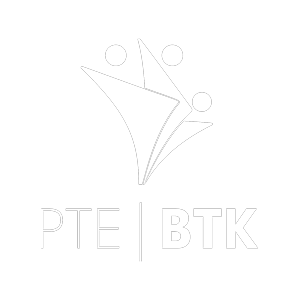CURRICULUM STRUCTURE
The Liberal Arts study programme is structured around three years of study, covering six semesters. Each semester is 14 weeks long, followed by a 6-week exam period. Students take seven/eight courses per semester of credit points ranging from 3 to 5. This amounts to a total study workload of around 40 hours of class and self-study per week on average. (One ECTS credit corresponds to a workload of about 30 hours.)
The sample curriculum structure (available/download here) shows the overview of the programme in more detail, divided per semester and per year.
With many variations and areas of study possible, use this sample curriculum in conjunction with the course overviews as a guide to explore how you can construct your own personalised version of the curriculum.
Curriculum components
The Liberal Arts curriculum is composed of five components:
1. Core courses
2. Major courses
3. Minor courses
4. Elective courses
5. Bachelor’s Thesis (Capstone)
In total, students take a minimum of 42 classes in addition to completing their Bachelor's thesis to achieve the 180 ects needed to satisfy the programme requirements to graduate.
1. Humanities Core courses
Core courses (36 ects) are classes that all liberal arts students must take. The Humanities Core encompasses basic and advanced academic skills, it is designed to develop thoughtful reading and discussion, clear articulation, self-criticism, and productive collaboration. It provides on the one hand a foundation for the rest of the programme with academic engagement, and on the other hand provides introduction to the disciplines that students can choose their major and minor program from.
See the list of the core courses here (https://btk.pte.hu/sites/btk.pte.hu/files/tantervek/Szabad%20b%C3%B6lcs%C3%A9szet%20angol_MT-SZBTANBA212201.pdf)
2. Major courses
The majors make the programme cohesive, and ensure that students attain a certain level of expertise in a specific field to proceed to Master’s degree programmes or more advanced studies in an exact field.
After the first semester of introductory courses, students will select one of the five majors:
- art history
- classical studies
- ethics
- film and visual studies
- philosophy
(The process of selection is conducted by the administration office at around the end of November.)
Based on this selection, students then begin taking courses to fulfil their major requirements (80 ects). Capstone project /Final Thesis must be written in the field of the student’s major. The Final Examination must also be taken in the major field.
3. Minor courses
During the second semester (mostly at the end of April) students choose a minor as well from the disciplines offered in the Liberal Arts programme, they start taking the minor courses from the third semester (50 ects). Because the disciplines offered by the programme are close to each other, students can select the minor that best corresponds to the area of interest they wish to pursue in their chosen field.
4. Elective courses
Students also take electives of their choice (10 ects). For electives, students are free to select courses from any of the majors and can take the opportunity to explore fields or disciplines that may not be related to their major or minor. Alternatively, students can use their elective courses to choose from courses offered by PTE outside the liberal arts . Elective courses encourage students to create personal curriculums that extend beyond traditional disciplines or conventional study programmes.
Cross-listed courses
The same course can be listed under multiple majors. However, the same cross-listed course cannot count towards multiple requirements.
5. Bachelor's thesis
In their third year, all students complete a thesis (Capstone, 4ects). This is an individual research project in which students explore a topic of their choice that represents the culmination of their personal study programme. It sees students developing, researching and analysing an original topic of their choice. This includes research under the guidance of a supervisor. Students will write a Bachelor's thesis that consists of a literature study, as well as original research results.
